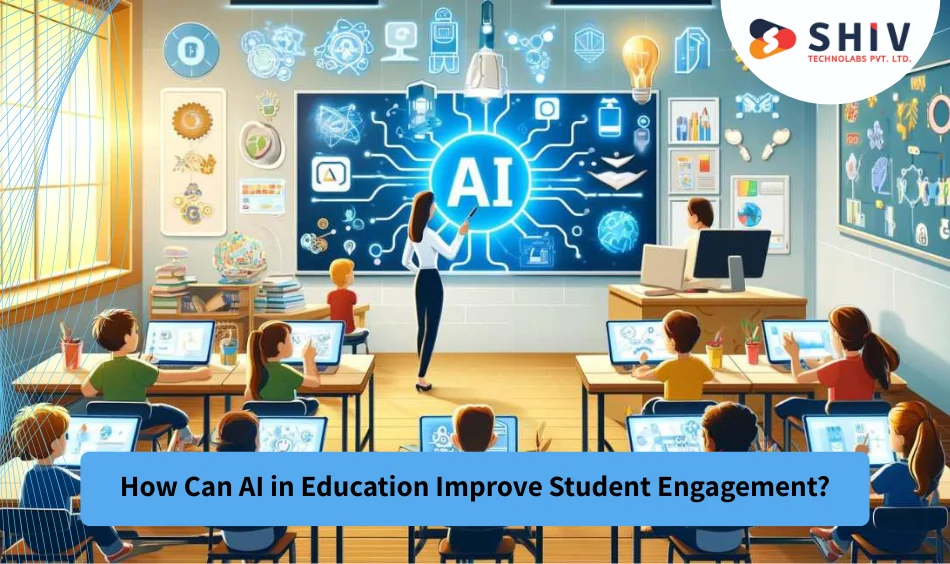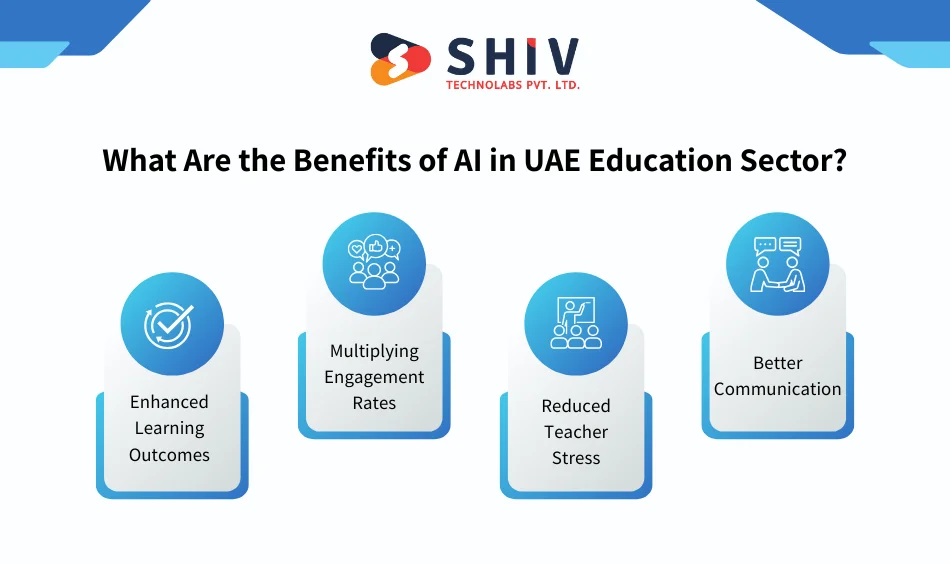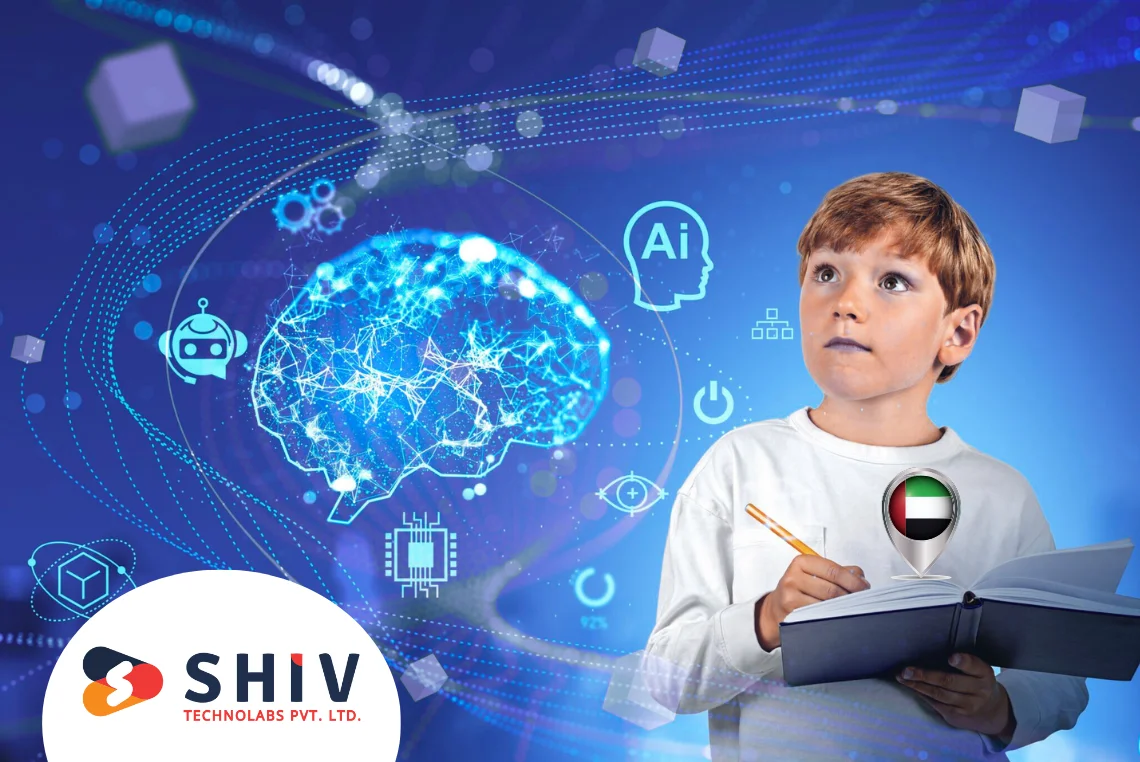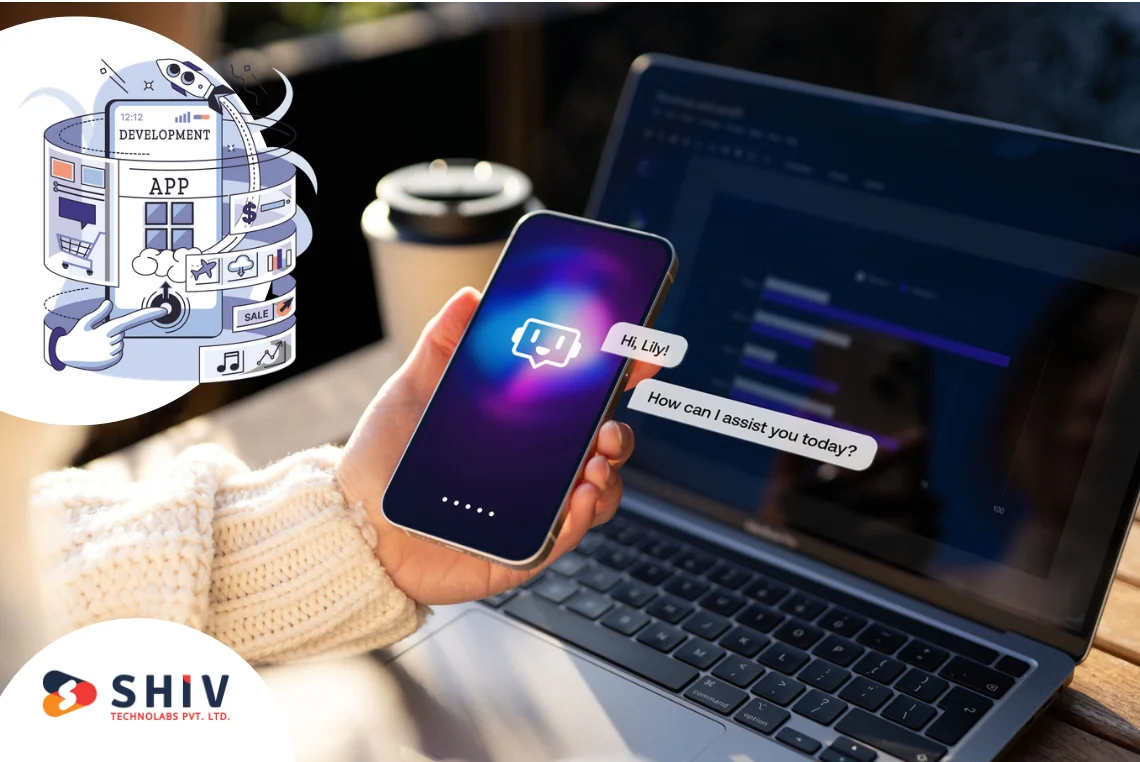Table of Contents
The educational sector in the UAE faces new challenges that threaten students’ involvement and academic success. From overcrowded classrooms to online learning fatigue, educational institutions around the Emirates are finding it hard to provide their students with a sense of connection. The problem is that traditional teaching methods are not addressing the learning needs of the digital native generation.
However, AI in education is fast re-writing the ways schools and universities all over are approaching students through the creation of learning solutions that can be adapted to a learner’s individual needs as well as their learning style. The innovative use of AI technology is not confined only to classrooms but is transforming the complete system on education across the UAE.
What Challenges Do UAE Schools Face in Student Engagement?
Educational institutions across UAE are facing significant obstacles that affect student engagement. The traditional approach to education does not attend to the individual needs of students from diverse cultural backgrounds and learning capabilities. AI for student engagement in UAE initiatives is now emerging as a key solution to these pressing issues.
The primary issues plaguing the UAE’s educational system include:
- Not personalized – Instructions are given to students with different learning paces and styles at the same pace and style.
- Teacher-Student ratio – Educators struggle to give dedicated individual attention to each student.
- Language and cultural diversity – Multilingual classrooms need differentiated approaches.
- Limited tracking tools – There are currently no proper tracking tools in the schools, making the teachers and school administrators lack real-time insights into student progress and engagement levels.
- Online learning fatigue – Students show less enthusiasm in online learning environments.
- Teachers’ workload – Educators spend a lot of time on documentation as compared to teaching.
These obstacles result in a sequence of events by which students get disengaged, their academic performance is lowered, and their teachers experience burnout. There has never been a more crucial demand for innovative solutions, thus making AI classroom solutions in the UAE basic tools for educational transformation.
How Can AI in Education Improve Student Engagement?

AI in education has introduced learning via intelligent, adaptive systems, which have changed how students engage with the learning process. Educational institutions are now able to create personalized learning systems that adjust to each individual needs in real time.
How Does AI Personalize Learning in UAE Classrooms?
Personalized learning with AI in the UAE represents a radical shift from traditional ways of teaching, technically known as ‘one size fits all’ education. AI systems analyze the students’ performance data, learning preferences, and engagement patterns to develop individualized learning paths.
| Traditional Teaching | AI-Personalized Learning |
|---|---|
| One-size-fits-all curriculum | Adaptive content based on individual needs |
| Fixed learning pace | Self-paced progression |
| Generic assessments | Personalized quizzes and evaluations |
| Limited feedback | Real-time performance insights |
| Teacher-centric approach | Student-centric methodology |
How AI improves student engagement in UAE classrooms through personalization can be enumerated as follows:
- It automatically adjusts the content based on learner’s comprehension system.
- Multi-language support for diverse student populations
- Learning style recognition and accommodation
How Does AI Provide Real-Time Feedback for Teachers?
AI-enabled dashboards are equipped to track students’ engagement and progress in real time.
AI for learning platforms in the UAE generates comprehensive updates that include:
- Student engagement metrics and participation rates
- Learning outcome predictions and risk assessments
- Automated alerts for students requiring additional support
- Performance comparisons across different subjects and time periods
How Can AI Make Learning More Interactive?
AI classroom tools in UAE are making learning interactive through gamification, adaptive quizzes, and immersive content. Many institutions also adopt web development and mobile app development to deliver these hybrid experiences.
Interactive AI features include:
- Gamified learning environments with achievement systems
- Quizzes that are adaptive and adjust difficulty in real-time
- Virtual reality experiences for immersive subject exploration
- Chatbot tutors available 24/7 for student support
What Role Does AI Play in Higher Education in UAE?
Use of AI in the higher education sector is redefining university processes from admission to graduation, enriching teaching and learning experiences. Universities throughout the UAE are deploying advanced AI tools to foster student achievements as well as compliance within institutional frameworks.
How Can AI Improve Admissions in UAE Universities?
An AI-powered system of admissions streamlines application processing, ensuring fair and comprehensive evaluation of candidates. AI-powered learning platforms in UAE universities benefit from machine learning algorithms as they can:
- Screen applications efficiently and identify qualified candidates
- Score essays and written responses objectively
- Predict student success probability based on historical data
- Match students to appropriate programs according to their interests and capabilities.
How Can AI Predict Dropouts and Support Student Retention?
The educational use of AI in UAE classrooms that engages students involves predictive analytics, which can identify at-risk students before they even think about dropping out. These systems serving as early warnings make the implementation of intervention strategies on a proactive basis possible.
Retention support features include:
- Academic performance trend analysis
- Engagement pattern monitoring
- Automated counselling session scheduling
- Personalized support resource recommendations
How Can AI Assist Career Guidance for UAE Students?
AI in higher education provides career guidance systems that are more sophisticated and do a better job at matching the interests and capabilities of students with industry demands. These platforms analyze market trends and skill requirements to provide appropriate career recommendations.
What Are the Benefits of AI in UAE Education Sector?

The benefits of AI in UAE education sector are much wider; they don’t just automate but transform the improvement of educational outcomes and institutional efficiency. AI development services are providing transformative benefits to schools and universities that go beyond multiple dimensions.
Key Benefits Include:
- Enhanced Learning Outcomes: They help students learn better and memorize information longer through individual teaching.
- Multiplying Engagement Rates: Students get interested and involved in the learning process with the help of AI interactive tools
- Reduced Teacher Stress: Teachers can devote more time on teaching than on administrative duties.
- Better Communication: Communicating instantly about children’s learning and development enhances the home-school connection.
AI for student engagement in UAE has shown a noticeable growth in attendance levels, assignment submissions, and overall performance amongst the participating institutions.
Which AI-Powered Learning Platforms Are Transforming UAE Classrooms?
AI-powered learning platforms in UAE are on the forefront of providing digital solutions that support both traditional and digital learning educational environments. These platforms combine multiple AI technologies to create seamless educational experiences.
How Do AI Platforms Support Hybrid Learning?
AI for learning platforms in UAE stand out when it comes to hybrid learning modes as they can easily switch between in-person and online teaching. These systems are able to maintain engagement regardless of the learning modality.
Hybrid learning support features:
- Synchronized content delivery across multiple channels
- Consistent assessment and feedback mechanisms
- Real-time collaboration tools for remote and in-person students
- Adaptive scheduling for flexible learning arrangements
How Do Dashboards Help Parents and Teachers?
Through comprehensive dashboards, stakeholders are provided with insights that help to take action on the students’ learning progress and engagement. AI classroom solutions in UAE generate automated reports that keep parents informed and teachers equipped with the necessary data.
Dashboard capabilities include:
- Progress tracking across multiple subjects and skills
- Behavioural pattern analysis and alerts
- Communication logs between teachers, students, and parents
- Predictive analytics for academic planning
How Much Does AI in Education Cost for UAE Schools and Colleges?
What Factors Affect the Cost of AI Classroom Solutions?
Several variables influence the investment required for AI in education implementations:
- Project Scope – Number of students, subjects, and features needed for the implementation
- Integration Complexity – Level of integration to existing systems/database
- Customization Level – Amount of customization to fit the institutional needs
- Data Preparation – Quality and quantity of historical educational data
- Training Requirements – Staff development and change management needs
- Infrastructure Upgrades – Hardware and network capacity improvements
What Is the Average Cost of AI in Education Projects in UAE?
| Project Size | Example Use Case | Estimated Cost (AED) | Timeline |
|---|---|---|---|
| Small Pilot | AI quiz system for one subject | 25,000 – 50,000 | 1–2 months |
| Medium Project | Student engagement dashboard (school-wide) | 60,000 – 120,000 | 3–4 months |
| Large Enterprise | AI-powered platform (university-wide) | 150,000+ | 6+ months |
What Are the Ongoing Costs of AI in UAE Education?
AI development Services include ongoing maintenance and support costs:
- Monthly cloud hosting and data storage fees
- Regular system updates and feature enhancements
- Staff training and professional development
- Data security monitoring and compliance maintenance
- Performance optimization and scaling adjustments
How Should UAE Schools Choose the Right AI Solutions?
Schools should look for AI solutions that fit their educational objectives. Choosing the right AI solutions provider requires proper evaluation to ensure long-term strategic goals.
What Features Should Schools Look for in AI Tools?
Essential features for effective AI classroom solutions in UAE:
- Seamless integration with existing learning management systems
- Comprehensive reporting and analytics dashboards
- Multi-language support for diverse student populations
- Scalable architecture for future growth
What Questions Should Schools Ask Vendors?
Critical vendor evaluation questions:
- Does the platform ensure data privacy and security compliance?
- Are training and support services included in the implementation?
- Can the system integrate with our existing educational technology stack?
- What are the long-term costs and upgrade pathways?
- How does the platform measure and report on student engagement improvements?
Why Partner with Experts for AI in Education?
While ready-made educational software may have basic functionalities, the ones that are developed by specialists of AI ML development company in UAE offer solutions that are specifically tailored according to specific educational institutions needs. AI benefits in the education sector in UAE are best optimized when working with experienced AI development partners like Shiv Technolabs.
Expert services include:
- Custom dashboard development tailored to institutional needs
- Predictive analytics implementation for student success
- Automated workflow creation for administrative efficiency
- Integration services connecting multiple educational systems
- Ongoing optimization and performance enhancement
Personalized learning with AI in UAE requires deep understanding of both educational pedagogy and advanced AI technologies which makes expert partnership essential for successful implementation.
What Is the Future of AI in UAE Education?
The future of AI in education in the UAE looks promising with continued innovation and advancements. Long-term adoption trends show that in the future, AI technologies will be incorporated into developing curriculum, assessment methods, and institutional management systems.
AI development services will advance to take care of emerging educational needs, such as virtual reality learning environments, complex natural language processing for multilingual education, and career guidance predictive analytics, which are more advanced.
The country’s efforts in upgrading education technology structure will eventually lead to the integration of AI-powered learning platforms in UAE, ensuring first-class and personalized, tailored learning experiences that prepare students for future success.
Frequently Asked Questions
Q1. How can AI improve student engagement in UAE classrooms?
AI enhances engagement via tailored learning paths, interactive content, feedback that is real-time feedback, and elements of gamification that keep the interests and motivation of the students.
Q2. What are the benefits of AI in UAE higher education?
The benefits consist of advanced admission applications, predictive analytics for student retention, better career guidance and data-driven decision making for institutional effectiveness.
Q3. Which AI classroom solutions are best for UAE schools?
The best AI classroom solutions in UAE align seamlessly, provide multi-language support, offer comprehensive analytics and are scalable architecture tailored according to specific institutional needs.
Q4. How much does AI cost for UAE education projects?
Education projects powered by AI can cost anywhere between 25000 AED for small projects to 150000 AED+ for complex implementation. The cost includes ongoing maintenance & support.
Q5. How do AI-powered learning platforms help UAE parents and teachers?
AI-powered learning platforms in UAE perform functions of giving instant progress reports, alerts on automation, tools for communication, and elaborate dashboards that convey information to all stakeholders, thus engaging them in the educational process.






















